How graduates from Ryerson’s new master’s program are fighting COVID-19
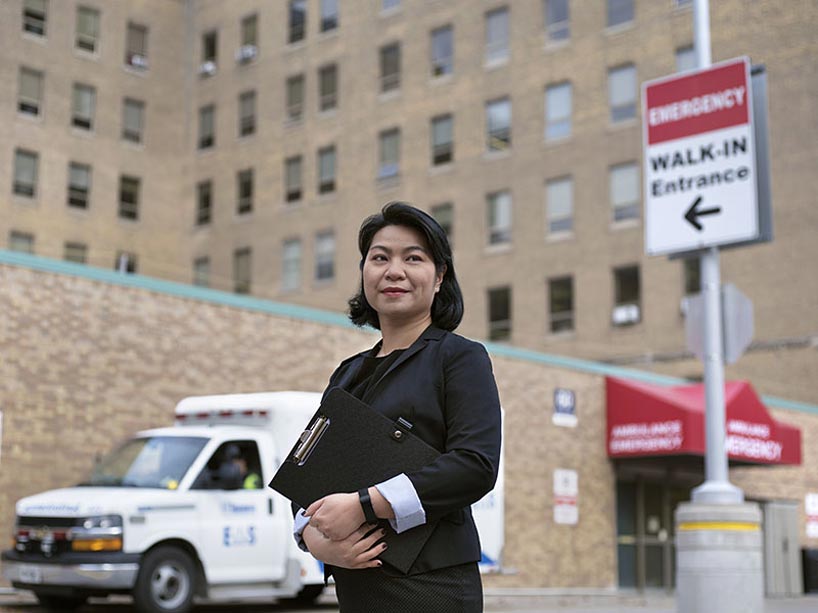
Kittie Pang is one of the first cohort of the new master’s program in Ted Rogers School of Management. A manager at Sunnybrook Hospital, she helps support diverse vulnerable groups during the pandemic. Photo: Ian Patterson.
In COVID-19 assessment centres, testing labs and homecare work, the graduates of Ryerson’s new master of health administration (community care) program are fighting COVID-19 from all fronts.
Many of the graduates from the first cohort of the MHA(CC) program, convocating this spring from the Ted Rogers School of Management, are working in various areas of the health-care system in the midst of COVID-19.
“We are very proud of our students who are bringing their skills and commitment to the COVID-19 challenge – at all levels, from front line to management,” said James Tiessen, director of the program. “The key system strategy has been to limit patient surges in hospitals by keeping folks safe in their homes, in the community – which is the focus of the program.”
Featured here are a few of the remarkable graduates and essential workers who are working for Canadians. They discuss how the pandemic has impacted them, what they’ve learned in the process and how they’re helping in the fight against COVID-19.
Christine Bruce
Administrative Director, Department of Microbiology, Sinai Health/University Health Network
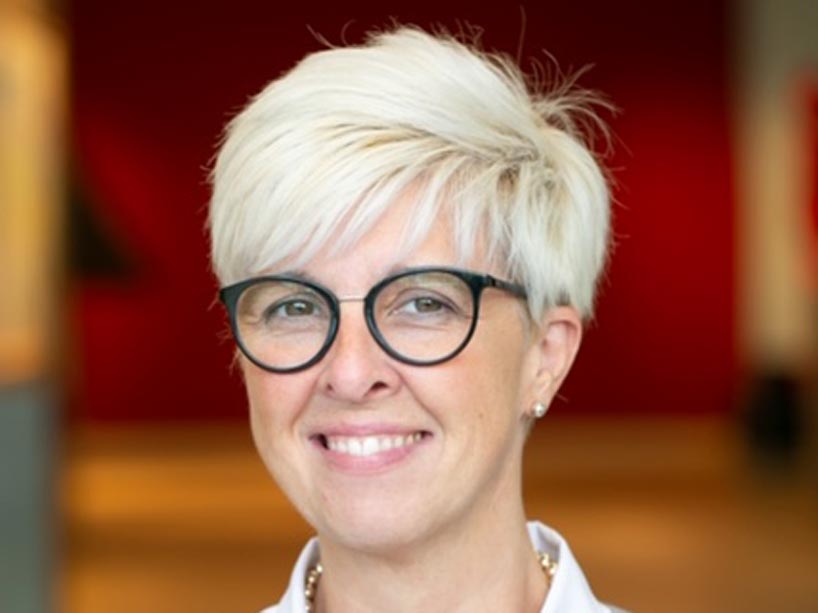
Christine Bruce led her lab in ramping up COVID-19 testing.
Christine Bruce has been at the forefront of COVID-19 testing in Ontario since the first signs of outbreak. As the administrative director of the microbiology lab shared between Sinai Health and University Health Network (UHN), she and her team were the first hospital lab in Ontario to go live with testing for COVID-19 on March 11.
“It seems like so long ago on that day when we proudly boasted the ability to test 654 samples a day,” said Bruce. “Since then we have been in steady ramp up whereby we now offer access to 11,000 tests/day to Ontarians.”
Bruce says her experience through the pandemic has been simultaneously rewarding and soul-destroying.
She led her team in unprecedented times, everyone doing Herculean amounts of precision work that the public is usually oblivious to in non-pandemic times, and although the value of the lab is now front and centre, she admits that it has taken a toll.
“It’s rewarding to feel that value. But it has come at a cost as the relentless pressure to keep building and growing has been hard on my team. But we have risen to the challenge and consistently delivered.”
She says she’s learned that we need to judiciously take public health’s guidance as it is very well informed, but it’s important for health-care professionals to insert themselves into the planning and advising discussions when possible.
“The testing targets were not aligned with capability initially and the ‘get to 20,000’ created a phenomenal pressure on the diagnostics industry that I feel if at the table, the industry could have informed better with a cohesive provincial response.”
She says that although they got there in the end - they have a few battle scars to show for it.
You can hear more about Bruce’s role in fighting the outbreak, the process of testing and how Bruce and her team have dealt with shortages of lab staff, on this podcast episode produced (external link) by the Medical Laboratory Professionals’ Association of Ontario (MLPAO).
Mubariz Tariq
Public Health Specialist, Red Cross
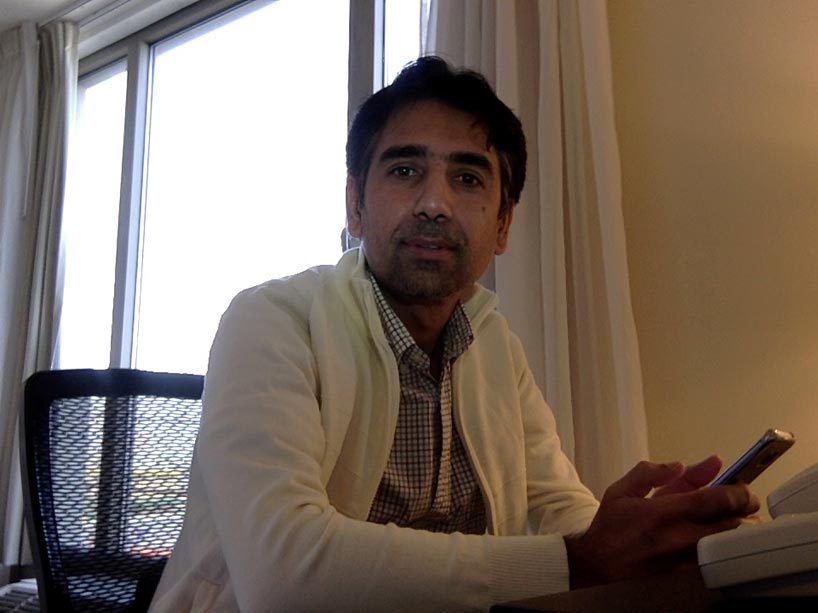
Mubariz Tariq works to control outbreak in long-term care homes.
Before coming to Canada, Mubariz Tariq worked with the International Red Cross for many years as a medical doctor in Afghanistan and internationally. Now, as a lead public health advisor with Red Cross in Quebec, he has been working to control the outbreak of COVID-19 in long-term care homes.
“Overall, my work has been life-saving and I felt proud to have been able to make life better for the most vulnerable group of people in our society, our seniors in long-term care homes,” says Tariq.
Tariq left his wife and children in the GTA to work in Montreal and provide infection prevention and control training to frontline workers and to help them develop new policies.
He believes the pandemic is teaching us, as a nation, that we need to be fully prepared for future pandemics and must prioritize vulnerable groups from the beginning.
“Should we fail to control COVID-19 in the long-term care homes, it will only lead to higher mortality rates among the seniors, but the virus will likely make a comeback into our communities.”
For a closer look at what Tariq has been working on, watch (external link) this interview with Radio-Canada.
Zein Lavji
Clinical Specialist, Neurophysiology, St. Michael’s Hospital
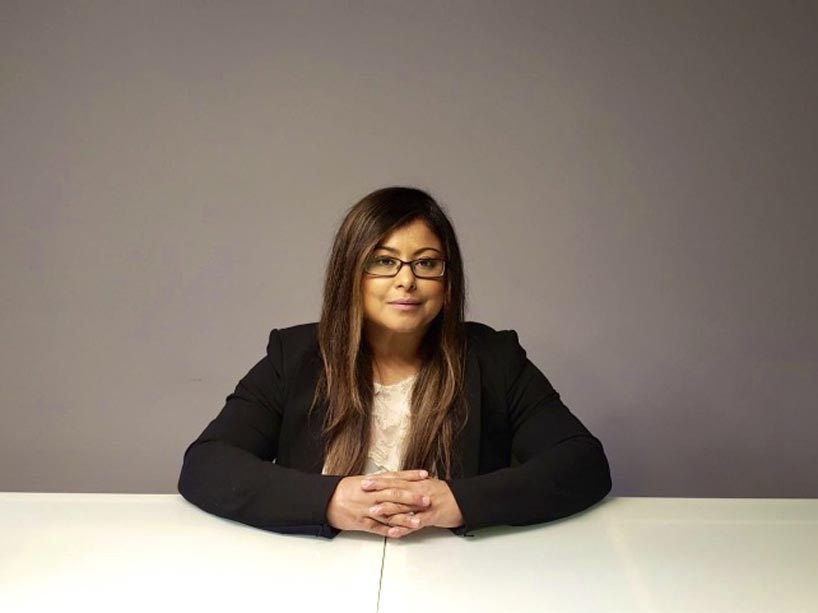
Zein Lavji credits the master’s program for preparing her to navigate challenges posed by the pandemic.
Zein Lavji wears several hats in order to adapt to the needs and situations at work and home life during the pandemic.
First, Lavji helped manage the initial set-up of off-site assessment centres in the wake of the pandemic. She also managed the supply of personal protective equipment (PPE) for medical procedures at St. Michael’s Hospital and developed safety measures and protocols for COVID-19 positive and suspected positive patients within specific areas of the hospital.
“My experience during the pandemic continues to be interesting each day. Much planning and awareness goes into every patient, staff or loved one I encounter or interact with. As a health-care professional, I worry more about spreading the virus to others than catching it myself.”
Lavji says that not only is she finding herself doing work she didn’t do before, but that her experience at the Ted Rogers School is helping her navigate these challenging times.
“My experience in the MHA(CC) program has helped me be a leader in every seat I occupy, such as making difficult decisions everyday. I have learned, empathy goes a long way, collaboration is the magic ingredient and getting comfortable with the uncomfortable is the new norm.”
Kittie Pang
Project Manager, Strategy & Integration Team, Sunnybrook Hospital
Kittie Pang is working on a list of programs to help support diverse vulnerable groups during the pandemic.
Through her work with hospitals and Ontario Health Teams, she’s been able to co-ordinate and develop programs organically within just a few weeks. Her programs focus on a variety of challenges including helping senior residents in North Toronto and new mothers who are feeling isolated and unable to have their usual social support from family and friends.
Pang says the pandemic has really underscored the pressures our health-care system is facing and has highlighted that what used to be gaps in the system, have now become chasms.
Pang also noticed that communities with an Ontario Health Team were able to move quickly and pivot their priorities into innovations and strategies during the outset of the pandemic. This enabled them to come together and be creative about solutions to support patients and families.
“I am hopeful the work we do will be successful and can be sustained even after the pandemic.”
Find out more about Pang’s thoughts about the master’s program in this interview and video by Ryerson’s Yeates School of Graduate Studies.
Julie Bisson
Nurse Practitioner, Ontario Shores Centre for Mental Health Services
Mental health and the challenges that come along with dealing with a global pandemic have made work in the mental health field even more critical.
Julie Bisson is working with an organization that provides short term, focused consultation and treatment to women with perinatal mood disorders and issues that affect a women’s mental health. She says that pregnant and postpartum moms experiencing labour and delivery of their newborns during COVID-19 has been a terrifying experience for them.
The mental health of frontline workers dealing with the pandemic has also become an important issue and Bisson and her team at Ontario Shores Centre for Mental Health Services are working to help healthcare workers deal with burnout, and/or anxiety and/or depressive symptoms related to COVID-19.
Suzanne Robinson
Independent Consultant
Suzanne Robinson worked for 10 years at the Local Health Integration Network (LHIN) as part of the planning team and says she noticed then some of the cracks we are seeing now in long-term care funding and the inadequacy of staff and compensations for Personal Support Workers (PSWs).
She worked at United Way Greater Toronto as a leader with the Community Investment Cabinet and is looking ahead to emerging lessons and tracking of long-term care circumstances. She is also investigating the need for basic guaranteed income and examining what legacy government programs may be replaced, what the costs may be and what effect it can have on meeting basic needs.
Jennifer Luft
Supporting care in long-term care home
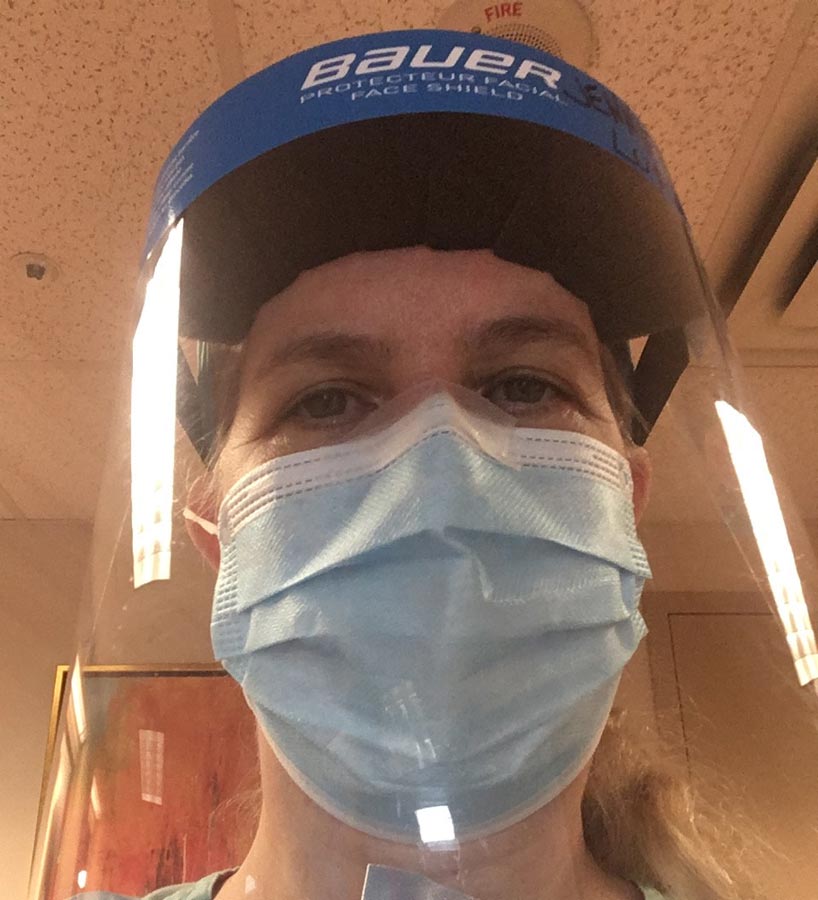
Reducing the impact of isolation is an important part of recovery, says Jennifer Luft.
Jennifer Luft is working in a memory care unit in a long-term care home. She joined the home at a time when cases were going down and is now focused on supporting recovery and reducing loneliness.
She says that her experience has shown her how important the little things are in her work.
“My experience in this emphasizes the value of knowing what small accessible things can bring a sense of joy to a person in order to support their recovery from COVID and to reduce the impact of the ongoing social isolation that is a consequence of quarantine.
Doris Brunath
Registered Nurse
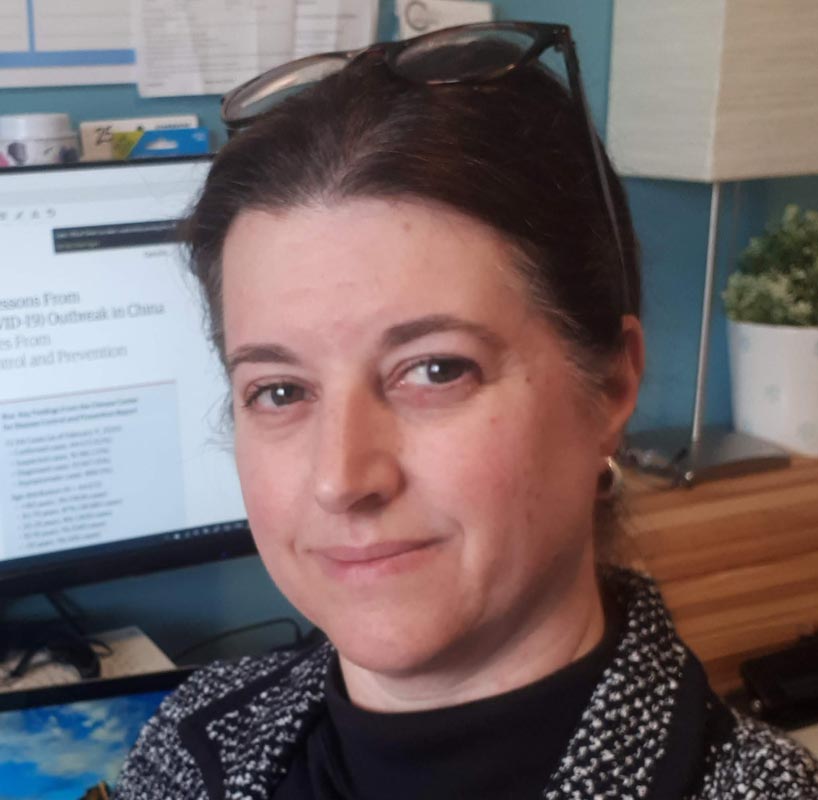
Doris Brunath credits her time at the Ted Rogers School of Management with helping her to navigate challenges due to the pandemic.
When Doris Brunath couldn’t access or procure personal protective equipment (PPE) for herself or her clients, she started making them.
She researched and evaluated key design criteria for the best effectiveness of PPE and even networked through social media with groups such as The Sewing Army to produce her own face masks and shields.
“During my days off, I have been sewing cloth face masks and building acetate face shields for my clients and all their care providers,” said Brunath. “I continue to produce these supplies to build up inventory to prepare for future waves of COVID-19.”
On work days, you will find Brunath as a registered nurse on the frontlines in the home and community care sector. She says she experienced first hand the impact of PPE shortages for healthcare workers and clients during the pandemic. She credits her time at the Ted Rogers School of Management with helping to navigate those challenges.
“The MHA(CC) program has prepared me to think strategically to overcome operational challenges using evidence-based management.”
She says she even applied her capstone homecare research and new administration skills to develop and implement infection prevention and control procedures to protect patients receiving care in their homes.
Christina Burns
Manager, Client Care at Lumacare
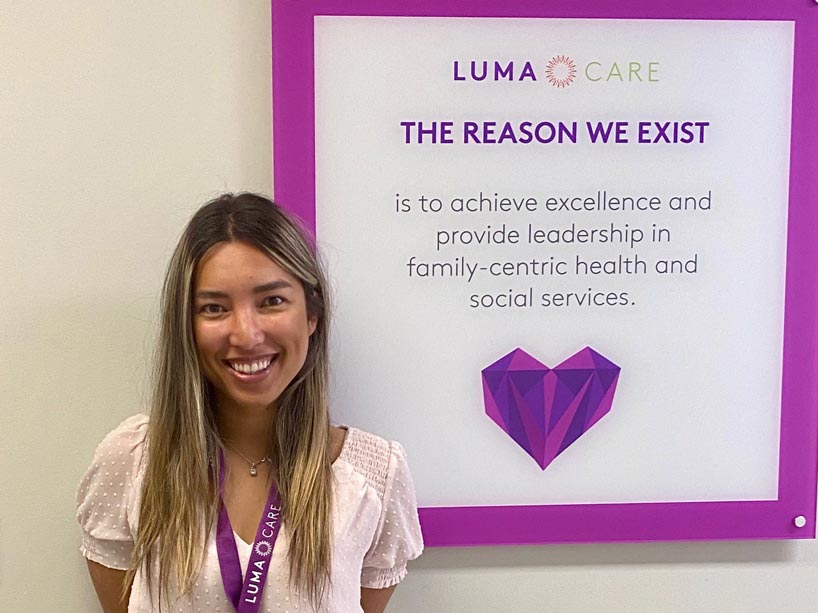
Christina Burns notes the value of partnerships and collaboration during a health crisis.
Christina Burns is leading a team of care navigators (social workers) who provide case management, assessments, co-ordination and support to older adults in the community. She is responsible for the planning of essential operations and service co-ordination.
“For me, working through this period has reinforced the importance of partnerships and collaboration between different actors in the health system for care to be integrated and oriented to client needs and outcomes.”
Burns is also responsible for collaborating with Humber River Hospital on discharging patients and facilitating transitions to home care allowing the hospital to free up resources. She also helps manage food security initiatives, personal care services, client screening processes and community partnerships.
“I've enjoyed the interaction with our health partners and hope it has shown all of us that we need these approaches and learning to be retained past the pandemic.”





